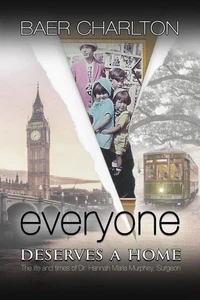Unlike the hundreds of how-to books, Mr. Charlton leads us down a winding path leading to being a writer. Irreverent at times and solemn at others, he lays out his pratfalls of growing up but never mocks. His explanations are clear and concise. His short stories entertain but are there to draw from. This unique meandering through a writer's mind answers one of the essential questions writers answer in interviews: "How do you come up with _______?"Charlton introduces us to his formative people, explaining how he drew from each person to produce specific characters or circumstances.
Consider this a cipher or companion handbook to his books. In his lectures on writing, Mr. Charlton explains writing dense or contextually rich novels that are not a drudgery to read. In his mysteries, he drops clues like a flirtatious southern lady would drop her handkerchief. Even the most innocent offhanded reference should never be a throwaway line. Throwaway lines are indirectly filler or fluff.
In this day of expensive printing, word count should be the last bloviated fixture in a novel. Learning to write concise should be the goal of every writer. Charlton discusses writing to the changing word counts in journalism, or even to an exact word count for a contest. His writing exercises are merely for self-examination. He uses his family as a collection of tools and information about the varieties of family undercurrents.
Ozzie and Harriet were good for thirty-minutes each week in the fifties but became tediously plebian for a novel-especially in a mystery or thriller. Better to substitute Ozzy Osbourne for the paternal role. Once he shows his lessons of youth, Mr. Charlton interjects some of his favorite short stories. These are the stories he uses as lessons, building characters real enough for them to snatch the storytelling from the writer and reveal the story, which is only theirs to tell.
Characters, storytelling, novels, or movies will never be the same again. As Charlton loves to point out-not all mysteries are murders, and not all murders are mysteries.
Unlike the hundreds of how-to books, Mr. Charlton leads us down a winding path leading to being a writer. Irreverent at times and solemn at others, he lays out his pratfalls of growing up but never mocks. His explanations are clear and concise. His short stories entertain but are there to draw from. This unique meandering through a writer's mind answers one of the essential questions writers answer in interviews: "How do you come up with _______?"Charlton introduces us to his formative people, explaining how he drew from each person to produce specific characters or circumstances.
Consider this a cipher or companion handbook to his books. In his lectures on writing, Mr. Charlton explains writing dense or contextually rich novels that are not a drudgery to read. In his mysteries, he drops clues like a flirtatious southern lady would drop her handkerchief. Even the most innocent offhanded reference should never be a throwaway line. Throwaway lines are indirectly filler or fluff.
In this day of expensive printing, word count should be the last bloviated fixture in a novel. Learning to write concise should be the goal of every writer. Charlton discusses writing to the changing word counts in journalism, or even to an exact word count for a contest. His writing exercises are merely for self-examination. He uses his family as a collection of tools and information about the varieties of family undercurrents.
Ozzie and Harriet were good for thirty-minutes each week in the fifties but became tediously plebian for a novel-especially in a mystery or thriller. Better to substitute Ozzy Osbourne for the paternal role. Once he shows his lessons of youth, Mr. Charlton interjects some of his favorite short stories. These are the stories he uses as lessons, building characters real enough for them to snatch the storytelling from the writer and reveal the story, which is only theirs to tell.
Characters, storytelling, novels, or movies will never be the same again. As Charlton loves to point out-not all mysteries are murders, and not all murders are mysteries.

 , qui est-ce ?
, qui est-ce ?